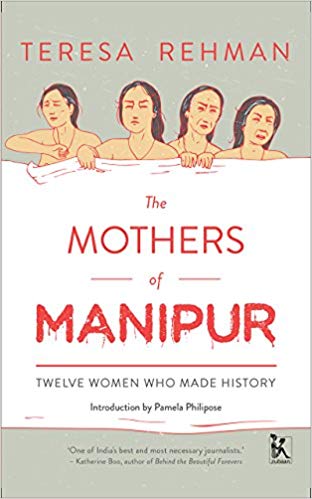Rehman’s book aims to document the landmark event of the Kangla protest, as well as its political and personal aftermath, through the voices of the twelve Manipuri women who took part in it. It is true that the twelve activists, otherwise known as the twelve imas (meaning ‘mothers’ in the Manipuri language), have spoken numerous times and at length to journalists, researchers and scholars about their experiences in the years following 2004. As Pamela Philipose writes incisively in her introduction to this book: ‘Over time the Meira Paibis turned into their own historians, keeping the Kangla fort action alive through the constant telling and re-telling of their stories. State censorship is flat-footed and cannot keep up with the swiftness and pervasiveness of personal accounts and the depth of that all-encompassing commons which is popular memory’ (p. xix). This is an astute assessment of the critical work of ‘storytelling’ as an instrument of political resistance in conditions of absolute state repression. However, in spite of the imas proving to be ‘natural raconteurs’ who, it seems, rarely grew tired of telling their story, a consolidated account of their narratives in their own voices has never before been attempted. Hence, Rehman’s endeavour remains indisputably valuable.
Rehman attempts to document not only the events leading up to the Kangla protest but also the subsequent lives of the twelve women. The several narratives are arranged in a sequence of separate chapters, each dedicated to one of the women. These chapters build upon each other, adding significant details, corroborating and on occasion, contradicting each other. The picture of the ‘actual event’ then emerges like a complex mosaic or palimpsest through these diverse narrations: each story is unique, yet each contributes towards the same collective history. In these chapters, the individual voices of the imas are telling ostensibly the same story and yet telling it differently, in tones quite distinct from each other. In spite of this, the writer makes no actual sustained attempt to let these stories speak to each other. If there are any shades, heterogeneities or traces of discord within the Meira Paibi movement, they do not appear except as fleeting glimpses that are allowed to pass without much commentary or analysis (p. 79). This is strange because amongst the individual narratives collected in the book, there are evidently considerable differences of class, educational privilege and social status.


861402 180616Hello DropshipDragon provides dropping for quality, affordable products direct from China to your customers. Perfect for eBay sellers and website owners alike! 608843
Rất chi tiết và dễ thực hành.
210231 490196 Youre so cool! I dont suppose Ive read anything like this before. So good to discover somebody with some original thoughts on this subject. realy thank you for starting this up. this internet site is something that is necessary on the web, someone with a little originality. beneficial job for bringing something new to the internet! 889121
852383 324299I feel you did an awesome job explaining it. Positive beats having to research it on my own. Thanks 345627